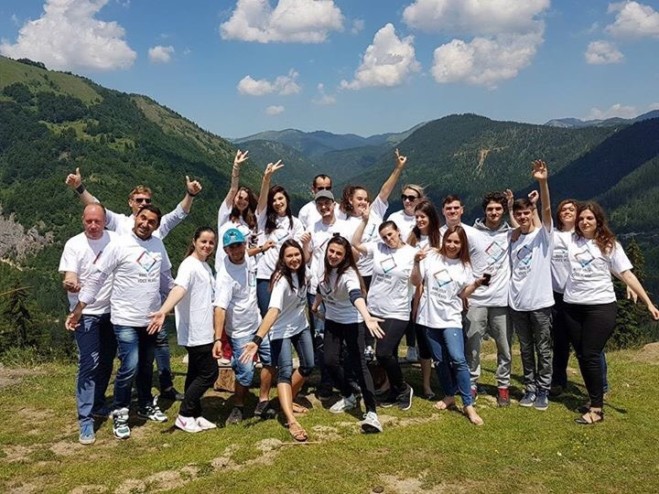Fitim Krasniqi, a senior in the Department of Communication in the University of Prishtina’s Technical Faculty, lives in Mitrovica and works for the Danish organization “Danish Refugee Council”. In his opinion, even though the Ashkali community to which he belongs faces many difficulties, things are “improving”.
“Many young people are being educated in different levels of education in Kosova, they are engaged in different job positions and also quite active in non-governmental organizations (NGO) as well as in different advocacy activities,” Krasniqi said for KosovaLive.
According to the 2011 census, there are 35,784 Roma, Ashkali and Egyptians living now in Kosova.
Lorenta Kadriu, the director of the non-governmental organization “Raise your hand for help” based in Fushë Kosova, says that these communities live in difficult conditions, including problems they encounter in education and employment.
“The interethnic communication remains one of the biggest challenges in Kosova. This lack of communication is most apparent in the limited knowledge that young people have about each other. They live with the prejudices and stereotypes instilled in them by the society,” Kadriu pointed out.
Last summer, this organization conducted a research in “Mutual prejudices between Albanians and Roma, Ashkali and Egyptian communities”, with 600 respondents, 300 out of which were Albanians and 300 belonged to the Roma, Ashkali and Egyptian communities.
Based on the research findings, the reciprocal interactions between Albanians and these communities are scarce.
Asked whether they had participated in any mutual activity, 45% of Albanians and 53% of Roma community participants gave a negative response. On the other hand, only 28% of Albanians and 15% of the members of these three communities have participated in mutual activities several times.
Donjeta Jashari, a sociologist from Prishtina, who participated in this research, indicates that along many other factors, the social status plays a crucial role.
“Roma, Ashkali and Egyptian communities are being prejudiced not only because of the lack of interaction or the deep-rooted preconception but also because of their looks and their social status. In a society in which economic wealth is a value you strive for, being prejudiced for belonging to a poor community is an acceptable norm,” she says.
According to the same research by the NGO “Raise your hand for help”, 44% of the respondents think that these communities are “prejudiced very much” and 16% think that they are “not prejudiced much”.
In June of 2017, The United Nations Mission in Kosova formed a group of young people from different ethnicities named “UN Youth Task Force”.
Jana Minochkina, the youth administrator and the government official of UN Mission in Kosova, says that this group of 24 young people was created because of the need for greater cooperation between young people.
“In partnership with the ‘UN Youth Task Force’ we have organized the first Assembly for Kosova’s youth, where 140 young people from different communities participated in developing several recommendations which will be sent to the institutions of Kosova, to the international organizations and to the UN itself. These recommendations portray the problems that the young people of Kosova encounter in their daily life,” Minochkina says.
In December last year, 50 recommendations from this group were addressed to the Ministry of Culture, Youth and Sport. The two most important requests refer to the informal education on eliminating the language of hatred between the communities and on the freedom of movement.
Jovan Zivkovic, who belongs to the Serbian community and lives in the municipality of Viti, is also a member of this group. He finished his studies at the American University RIT (Rochester Institute of Technology) in Prishtina as well as in the Department of Architecture at the University of Prishtina, in his native language. Now he works as a school teacher in the municipality of Viti.
“I participate in such activities because I want Kosovar youth to become more active since 60% of the population is young and Kosova is considered one of the countries with the youngest population in Europe. Such activities bring young people together to work and to build a promising common future.”
According to Zivkovic, it is only through education that the barriers between communities can be broken and the more educated the society is, the easier it will be.
“I am a typical example. I have lived in a rural area and I decided to live in Prishtina for four years in order to be educated and have a better future. I had friends from all communities and I believe that this is one of my most valuable experiences.”
Fatlinda Daku








